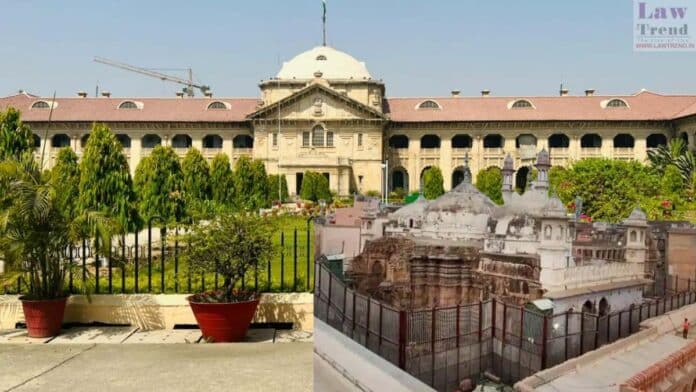The Allahabad High Court Wednesday adjourned the hearing till December 1 on a petition challenging the maintainability of a suit seeking restoration of a temple at the site where the Gyanvapi mosque exists in Varanasi.
The petition was filed by the Anjuman Intezamia Committee (AIC) which manages the Gyanvapi mosque.
When the case was taken up by Chief Justice Pritinker Diwaker, a request was made by the counsel representing the mosque management committee to adjourn the case on which the court fixed December 1 as the next date of hearing in the case.
The chief justice is hearing the plea which was earlier heard in the court of Justice Prakash Padia.
The AIC has challenged the maintainability of a suit filed before a Varanasi court in which plaintiffs sought restoration of a temple at the site where the Gyanvapi mosque stands.
The petition by AIC also challenges a Varanasi court’s order passed on April 8, 2021 directing the Archaeological Survey of India (ASI) to conduct a “comprehensive survey” of the Gyanvapi mosque located next to the Kashi Vishwanath temple.
Also Read
At present, the ASI is carrying out a survey of the mosque premises, except the wazookhana, to determine whether the 17th-century mosque was constructed over a pre-existing structure of a Hindu temple.
The survey began after the Allahabad High Court upheld a Varanasi district court order.
The mosque side had also moved the Supreme Court against the high court’s order. The apex court had on August 4 refused to stay the high court’s order on an ASI survey.
In its order, the bench of Chief Justice D Y Chandrachud and Justices J B Pardiwala and Manoj Misra, however, asked the Archaeological Survey of India not to carry out any invasive act during the survey. This ruled out any excavations, which the Varanasi court had said can be conducted, if necessary.




